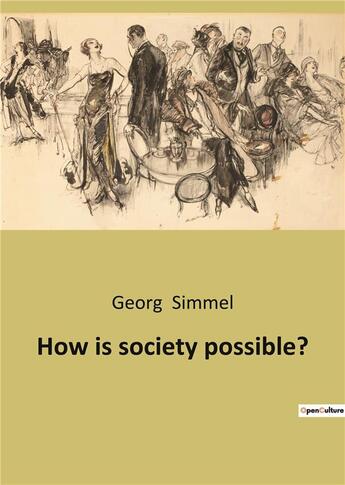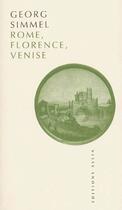-
Date de parution : 19/12/2022
-
Editeur :
Culturea
-
EAN : 9791041941025
-
Série :
(-)
-
Support :
Papier
-
Nombre de pages : 28
-
Collection :
(-)
-
Genre :
Sociologie
-
Thème :
Sociologie
-
Prix littéraire(s) :
(-)
Résumé:
Georg Simmel's essay How Is Society Possible? is built on the idea that an individual can develop himself or herself fully only by entering into society but nevertheless remains marked with an in-addition or individuality-nucleus that is never entirely socialized.
Georg Simmel, American... Voir plus
Georg Simmel's essay How Is Society Possible? is built on the idea that an individual can develop himself or herself fully only by entering into society but nevertheless remains marked with an in-addition or individuality-nucleus that is never entirely socialized.
Georg Simmel, American Journal of Sociology, vol. 16 (1910-11) Kant could propose and answer the fundamental question of his philosophy, How is nature possible?, only because for him nature was nothing but the representation (Vorstellung) of nature. This does not mean merely that the world is my representation, that we thus can speak of nature only so far as it is a content of our consciousness, but that what we call nature is a special way in which our intellect assembles, orders, and forms the sense perceptions. These given perceptions, of color, taste, tone, temperature, resistance, smell, which in the accidental sequence of subjective experience course through our consciousness, are in and of themselves not yet nature; but they become nature through the activity of the mind, which combines them into objects and series of objects, into substances and attributes and into causal coherences.
Donner votre avis









